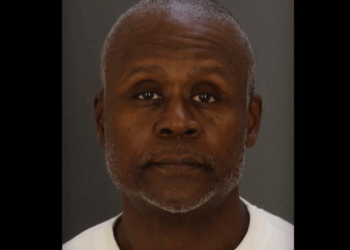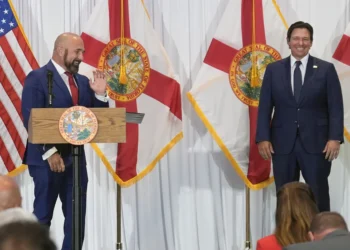The controversy surrounding Joe Biden’s use of the infamous autopen recently grew as new Justice Department documents have come to light. Those records show that even Biden’s own administration expressed serious reservations regarding the legality of a slew of Biden’s last-minute pardons.
The Oversight Project, a legal watchdog group, recently obtained a number of emails from the Biden-era Justice Department that expose a number of questions about a number of Biden’s last-minute pardons that were conducted with the infamous autopen.
The emails are from the former Associate Deputy Attorney General Bradley Weinsheimer, a 34-year veteran of the Justice Department. As Oversight Project President Mike Howell explains, “This represents the first written black and white evidence of fundamental disagreement in the Biden camp as it relates to the pardon strategy writ large.”
According to Howell, these emails are pretty damning and raise a slew of legal concerns regarding the validity of a number of Biden’s pardons. “Obviously, this is particularized to the warrants for the commutations of people they never should have let out of jail,” Howell stated, “but it’s the senior-most career lawyer in the DOJ, like [Merrick] Garland’s top guy, basically saying, ‘WTF are you guys doing? This is illegal.’”
In a White House statement from January 17, 2025, just days before Donald Trump took office, Biden announced that he was “commuting the sentences of nearly 2,500 people convicted of non-violent drug offenses.” Biden also said in the statement, “I have now issued more individual pardons and commutations than any president in U.S. history.”
Apparently, Biden or whoever was running the White House, in issuing this mass commutation, failed to adequately vet all the legal considerations with the Justice Department.
This is where Weinsheimer raises a number of objections, not the least of which is Biden’s claim that all of those whose sentences he was commuting he described as “nonviolent drug offenses.” Weinsheimer wrote, “I do not think it is close to accurate to describe all the clemency recipients as those convicted of non-violent drug offenses.”
He identified 19 of the 2,490 felons, who were under consideration for clemency, as “highly problematic,” due to their record of violent offenses, including such crimes as assault and murder. Biden would grant clemency to 16 of these felons.
Weinsheimer tellingly wrote, “I have no idea if the President was aware of these backgrounds when making clemency decisions.” He added, “The Department was largely excluded from the process, which we otherwise opposed.”
There are a number of legal questions that Weinsheimer raised as to the broad scope of these communications, and due to this, the possibility that the incoming Trump administration could overturn them.
This lack of clarity only raises the question as to who was actually making the decision on these pardons and commutations. Thanks to the prolific use of the autopen, was Biden even aware that these actions were being taken? Apparently, Biden’s own Justice Department was left in the dark as to how and why these actions were being taken.
Howell astutely asks, “Is this going to be a political talking point, that we refer to Biden as the autopen presidency and everybody laughs, or is the Justice Department going to actually take steps to impose accountability?” That is the question. As more comes to light regarding Biden’s mental state, and questions mount as to who was actually calling the shots in Biden’s White House, deep legal and ethical questions arise and must be addressed to prevent this from ever happening again.

















